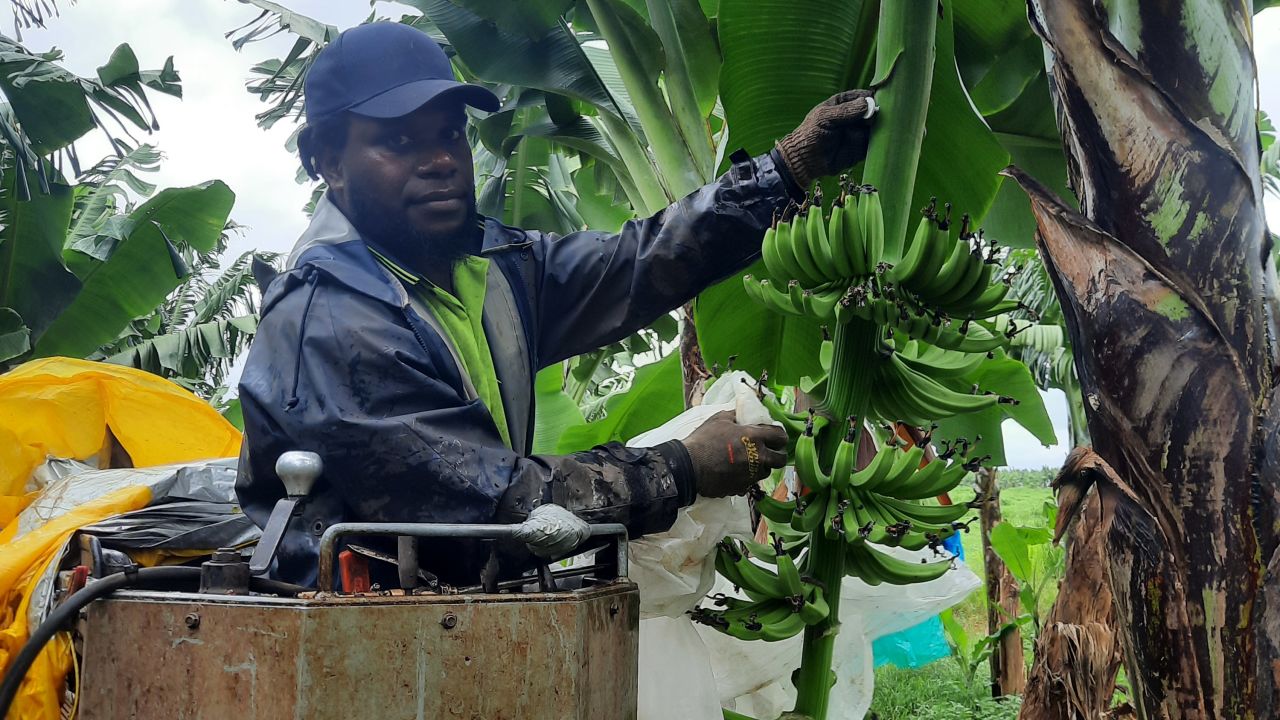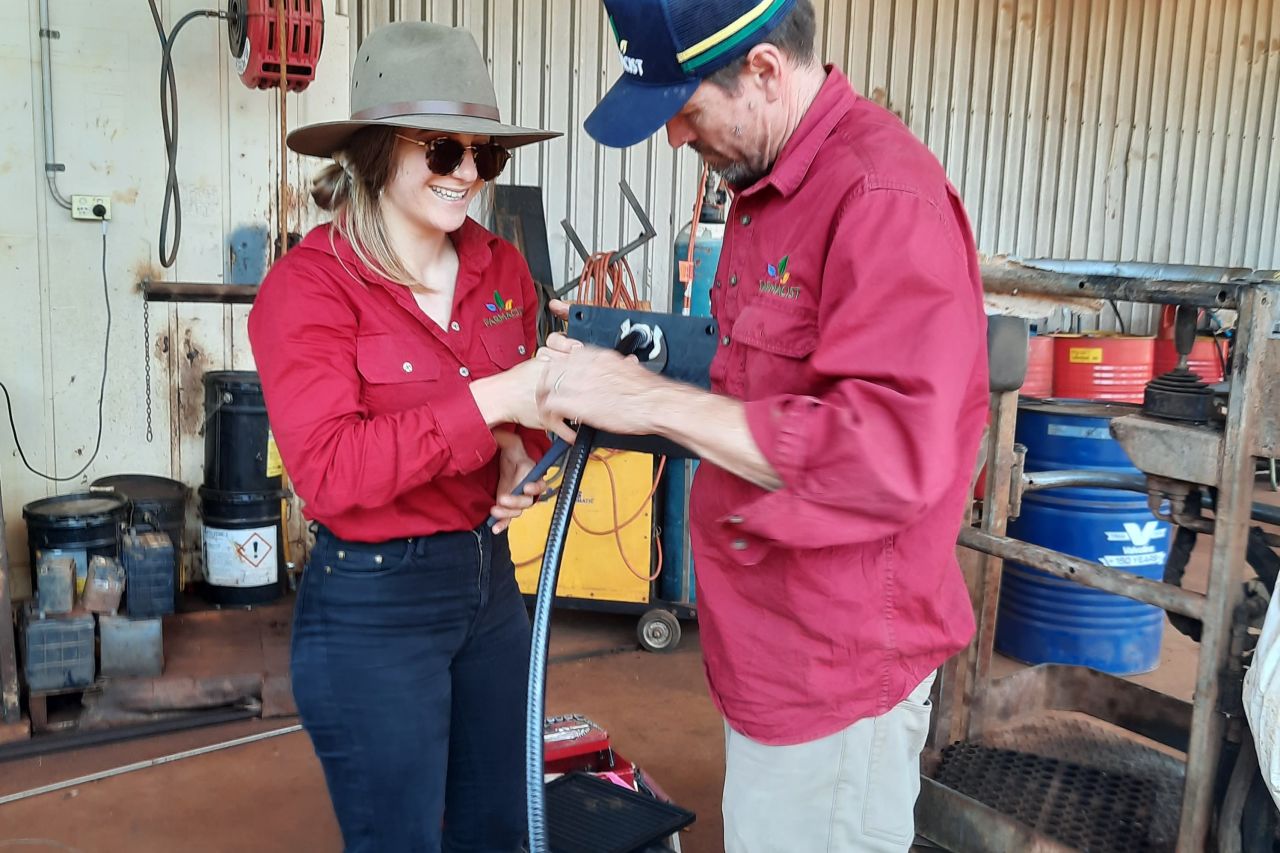Project News ·
Extension to Banana project brings precision agriculture to banana industry

Farmacist has been granted additional funding from the Great Barrier Reef Foundation’s Water Quality Innovation fund to advance a prototype Banana Yield Mapping system. Banana growers in Queensland are now one step closer to gaining access to an innovative method for reducing their costs and improving the quality of water leaving their paddocks thanks to the efforts of our project partner.
‘This next phase is about rolling the new system out at scale across two commercial farms,’ said project manager Will Higham. ‘We’re going to focus on how to make the best use of the data the system is producing to implement a precision agriculture program.’
Precision agriculture
Although precision agriculture tools like yield variability maps have long been a pathway towards more efficient and sustainable farming practices, applying these tools in the banana industry is uniquely challenging. Unlike cereals, where a machine can map yields whilst harvesting an entire field at once, a big enough banana paddock requires harvesting by hand every week.
‘Grain harvesters have two or three headers harvesting thousands of hectares,’ said Will. ‘It’s all grown at the same time. With bananas, some of the bunches will be ripe this week, some next week, and some the week after.’
Fortunately, innovative thinkers like Will Higham and his colleague Shannon Byrnes work to create solutions that are good for farmers and the environment. Thanks to the additional funding, the team at Farmacist can develop a fourth prototype for the system and roll it out across two commercial banana farms.

Farmacist employees Shannon Byrnes and Will Higham working on the prototype for the Banana Yield Monitoring System. Credit: Farmacist
How it works
Banana bunches are typically bagged when they form on the tree to protect them from damage. A grower with the Banana Yield Mapping System would also use a tag with a unique ID number that locates the bunch via GPS and records the time and date.
‘Somewhere between 8 and 12 weeks later, the banana bunch is brought into the packing shed,’ Will explains. ‘At the scales, there is a tag reader that combines the date and time recorded on the tag with the weight of the bunch.’
As the data is collected, daily and weekly reports can be sent directly to the grower, which can help with on-farm productivity.
“It’s not just yield mapping, but a whole heap of metrics that can be used from this data,” said Shannon. “Farmers can better manage their workforce and know when a certain row needs to be harvested going forward.”
Between 6-12 months later, the software has collected enough data to produce a yield variability map.
How it helps farmers and the Reef
‘Yield variability maps are a fundamental component of precision agriculture for any crop,’ said Will. ‘They help us work with the farmer to develop and implement sophisticated nutrient management plans.’
A well-designed nutrient management plan will help the grower apply fertiliser and other inputs only where the crop needs them to maintain a profitable level of production, rather than overapplying the increasingly expensive product and risk polluting local waterways with an excess of nutrients and other pollutants.
Farmacist plans to make the Banana Yield Mapping system into a commercially available product for banana growers in Queensland by 2024. As Farmacist rolls the system out onto two commercial banana farms in the next year, the team will work closely with the growers to ensure they are using the system to its potential.
‘That’s why Shannon is involved in the next stage of this project,’ said Will. ‘Her bread-and-butter is working with farmers every day to precisely apply nutrients.’
Shannon was featured in our People of the Reef series. If you'd like to read more, click the link below.
Shannon Byrnes: ‘Farmers know better than most how crucial sustainability is’




